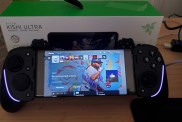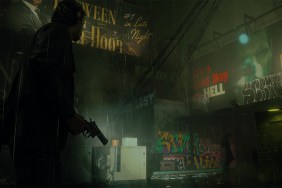Shouldering a hefty amount of expectation on its broad, metallic shoulders, Titanfall deployed from orbit onto PC and Xbox platforms in 2014 without a single-player campaign. In its place, developer Respawn adopted a design approach that allowed the narrative and multiplayer component to run in parallel which proved to be unique, yes, but largely underwhelming.
Whether Titanfall required a plot to begin with is something we’ll leave to you, but it’s fair to say that the implementation of said story resulted in a confusing mess of rogue agents, galactic warfare and a familiar world of guerrilla fighters and power-mongering conglomerates. That’s not to say that the narrative underpinning Titanfall was ostensibly bad, but when the entirety of the story is relayed through radio clips and/or relegated to a small corner of your HUD, there’s only so much empathy you can evoke.
You Can’t Take the Sky From Me
It was story without exposition, and while Respawn has candidly admitted that a lack of resources was to blame for the lacklustre plot, Titanfall 2, with its fully-fledged campaign, represents an opportunity to drastically expand the sci-fi lore. Heck, with a TV spinoff series also in the works, it’s clear the studio has invested a lot of faith in its budding new franchise.
To combat this added development strain, Respawn recently conducted a hiring spree, expanding its core dev team by close to 30 percent with the option of growing further still. It’s hardly surprising that the studio has drafted in new creators, given that Titanfall 2 will be built from the ground up with current-gen consoles in mind, but how this fresh wave of talent impacts the story is perhaps most exciting of all.
A cornerstone of that crack team is Jesse Stern, whose past credits include TV series NCIS and most enticing of all, Call of Duty 4: Modern Warfare and Modern Warfare 2. Stern may have been a part of the original team that helped nurture Titanfall into a bona fide success, but in preparation for its multi-platform sequel, the scribe has placed his proverbial crosshairs on a world that is grounded, dirty and ultimately, human.
Hardly themes that will revolutionze the sci-fi genre, though Respawn is more concerned with drawing from the real-life conflict of the American Civil War, unpacking its core history of colonial warfare and firing it into the inky blackness of space.
For on the final frontier, societal rules are fragile at best. It’s the wild west out there, and as the remnants of humanity begin to extend their reach far beyond the solar system, the next generation of immigrants have spent more time fighting one another than colonizing the stars. Yes, Titanfall 2 continues to chronicle the intergalactic spat between the Interplanetary Mining Corporation (IMC) and the Militia.
In the words of Stern, Respawn’s sequel, buoyed by a fully-fledged campaign, will explore how those pioneering machines, once designed to terraform an alien world to sustain human life, become warped into instruments of war.
So we are doing our best to deliver a vision of grand global colonial warfare retelling the story of the American Revolution and the American Civil War in space. We imagined the next generation of immigrants moving out to the new frontier of an inhabitable planet. Rather than taking a traditional sci-fi approach to that we wanted to look at how that would happen practically, what the ships would look like and with machines that were designed for excavation and construction , demolition and working the land, and what happens when they are turned into instruments of war.
It’s certainly an interesting and evocative pitch, and one that will hopefully lend dramatic heft to Titanfall’s futuristic warfare — dramatic heft that was sorely lacking in the 2014 original. Because there’s no question that, despite bursting out the gate with all the kinetic energy of a skilled pilot, Respawn’s maiden title witnessed a steep drop-off in users once the studio’s post-launch support culminated with IMC Rising.
Alas, it was one of the many titles caught between the recent console transition. Titanfall may play like a dream at times, and the free-flowing movement system is enough to give even Mirror’s Edge a, ahem, run for its money, but two years after release and Respawn’s mech-shooter is already beginning to show its age — like a coating of rust creeping over the game’s steely exterior.
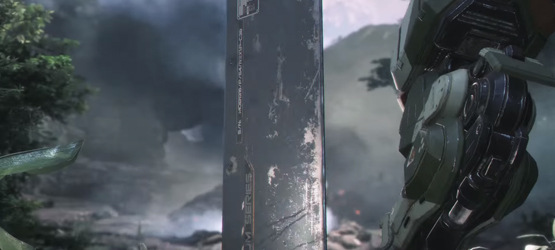
Much like Evolve and even Star Wars Battlefront, a missing campaign inevitably called Titanfall’s staying power into question. Make no mistake, all three titles have carved out varying, but no less dedicated player bases since making their bow. But by committing to an online-only infrastructure — Battlefront’s single-player game modes notwithstanding — both Evolve and DICE’s licensed title fall into the games-as-a-service camp, where developers pump out new content in the months after launch to keep those servers busy and trigger fingers a-twitching.
It’s limiting, of course, in the sense that a multiplayer-focused template doesn’t necessarily lend itself to the sequel treatment. From purely a design standpoint, MOBA-styled shooters in the vein of Battleborn or Blizzard’s Overwatch are arguably about as close to evergreen status as a shooter can become; developers map out core gameplay mechanics, maps and the like, before gradually fine-tuning the formula — be that through new content or technical fixes — over time.
Shoot for the Stars
Currently, Titanfall falls somewhere in the middle of that shooter spectrum as Respawn continues to shape the identity of its budding new franchise. Indeed the decision to implement a single-player campaign puts the studio’s IP in direct competition with Call of Duty and DICE’s Battlefield series — if it wasn’t already — as it shoots for a similar portion of the genre’s massive audience.
Scrapping for shooter supremacy will be a tall order for Titanfall 2 — story campaign and all — but given the original carved out a healthy install base of over 10 million players, coupled with the expansion to new platforms, there is already a tangible momentum building towards the sequel’s arrival.
Speaking of which, Titanfall 2 has its crosshairs locked on a late 2016/early 2017 release — all we know for sure is that EA will launch Mass Effect: Andromeda, Titanfall 2 and a new Battlefield before March 2017. Nevertheless, come June 12 (1:00pm PT/4:00pm ET), we’ll get our first peek at actual gameplay, giving us a better indication of how Respawn’s sequel is shaping up and, crucially, that single-player campaign.
Besides, you know what they say about the importance of nailing a second album. Should the stars align, a multi-platform Titanfall 2 replete with a solo campaign has all the makings to be a defining release for Respawn — for better or worse.
Essential Reading:
- Titanfall Story Recap in 60 Seconds
- Why We’re Excited for Titanfall 2
- Titanfall 2 to Include “Top Secret” Pilot Ability & New “Network Optimizations”
Titanfall 2 Feature 3.11.16
-
We're Excited for Titanfall 2, Are You?
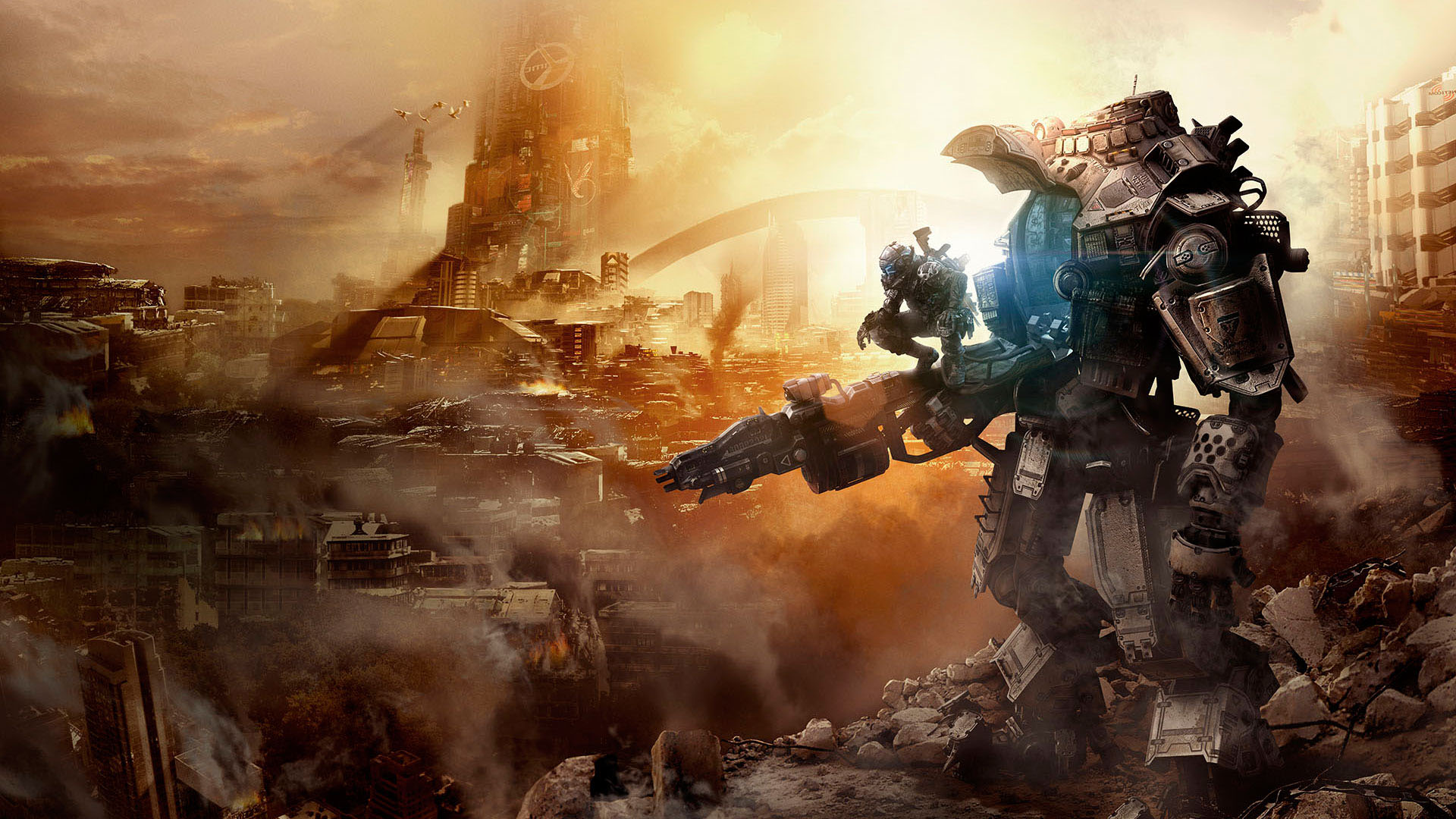
In anticipation of Titanfall 2, we recount what makes Respawn's shooter so good to begin with.
-
A Different Breed of Shooter
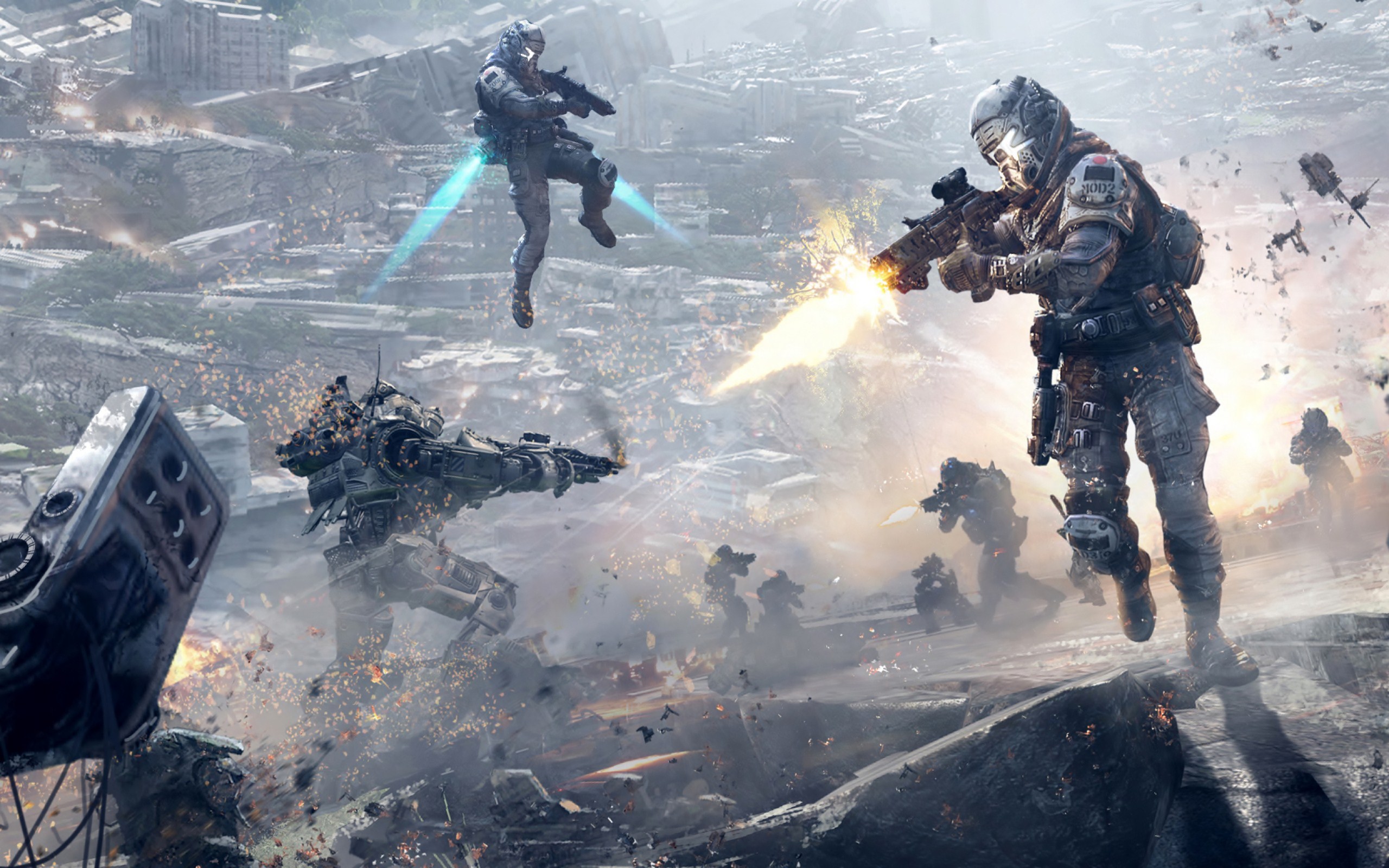
Held up as a revolutionary addition to the FPS genre, it’s fair to say that Titanfall risked being consumed by its own hype prior to release. It was considered to be Microsoft’s killer app — the one title that would fire the Xbox One off shelves and into the living room — along with the next step in competitive multiplayer. Even for a shooter that features hulking, futuristic mechs, the strain of expectation began to show like rust creeping over Titanfall’s steely exterior.
Digging beneath the hyperbole and there IS a nugget of truth to those claims. Titanfall didn’t rip up the rulebook; Respawn’s shooter is the rulebook on steroids. Hopping into a 20-foot mech is one thing, but the feeling of zipping between buildings as a pilot is intoxicating. Granted, there aren’t many game modes to experiment with, but Titanfall's free-flowing movement system doesn’t take long to get its hooks in you. Plus, that moment when you hunker down in a safe corner of the arena before calling in your Titan from orbit is pretty special, regardless of how many times you hear “standby for Titanfall.”
-
Mech-on-Mech Warfare
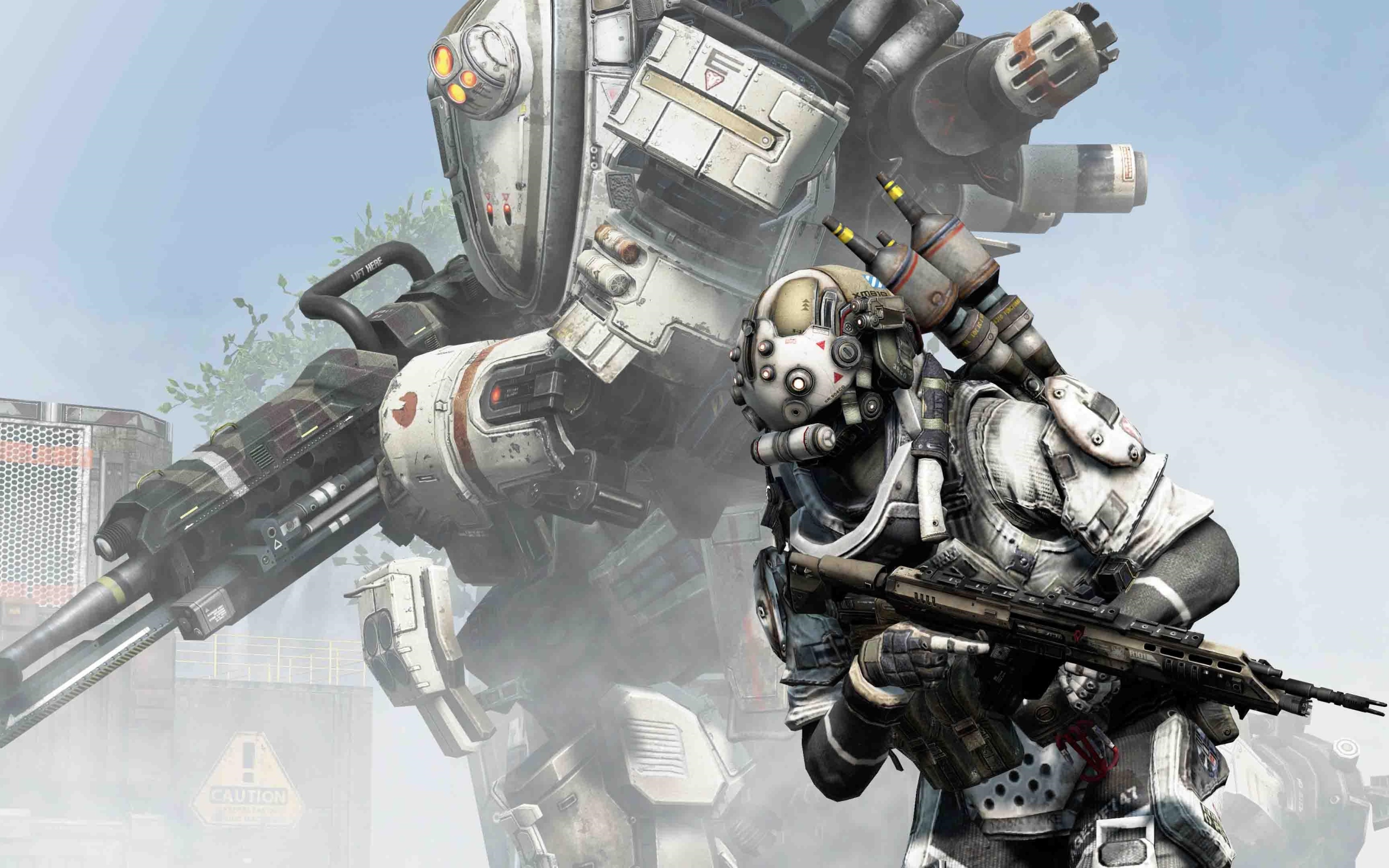
We can’t recount the highlights of Titanfall without addressing the elephant in the room. Yes, wall-running as a pilot is enough to get the blood pumping and pupils dilated, but Respawn added a whole new layer of intrigue to its multiplayer shooter via mechs. Hammond’s deadly machines come in three variations: Atlas, the entry point to your towering arsenal, along with the Ogre and Stryder. And those bipedal weapons of war would be enough to keep Solid Snake awake at night.
Controlling a titan may not be as intuitive as playing the boots on the ground, but by allowing players to switch their hulking companion to AI mode while running and gunning around the map, it allows for a more flexible playstyle, rather than the giant mechs being viewed as just another killstreak.
-
Addicting, Twitch-Based Gameplay
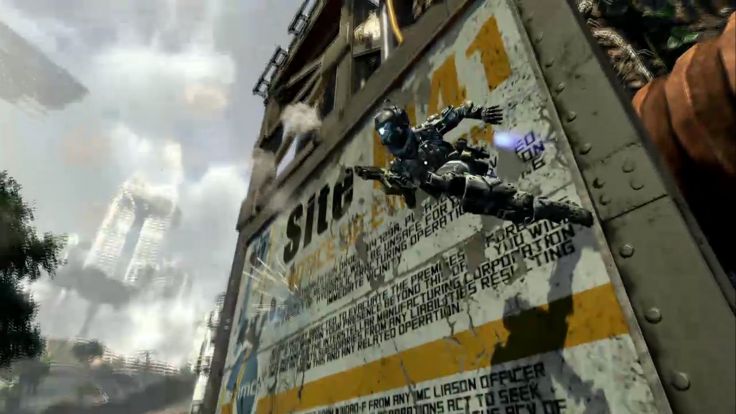
Remember the overwhelming hype that threatened to engulf Titanfall before release? Part and parcel of that hyperbole stemmed from the shooter's blistering sense of pace. Call of Duty may have instated 60fps as the multiplayer standard, but Respawn's debut took that one step further with its liberating wall-running system.
Granted, two years after release, said mechanics aren't as impressive, particularly now that they've been normalized via Advanced Warfare and last year’s Black Ops 3. Even still, the underlying gameplay systems gripped you and refused to let go, so imagine the ways in which Respawn will iterate on that design philosophy within a game built from the ground up for PS4 and Xbox One.
-
An Intriguing, If Familiar Story
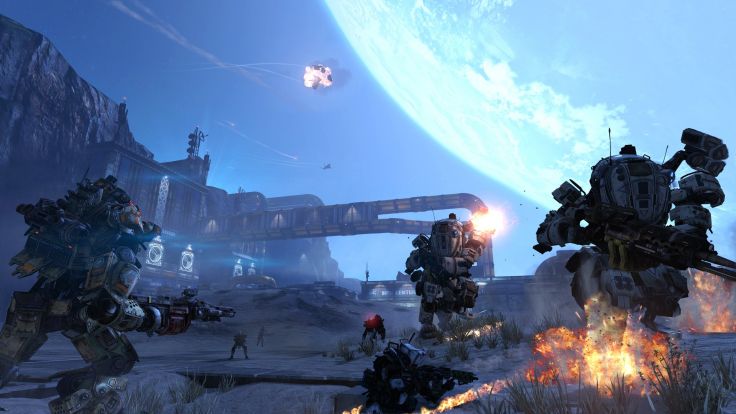
Take a glance at the archives of science fiction — be it film, gaming or literature — and you’ll find that most stories rooted in a far-flung version of space colonisation involve a power-mongering conglomerate and a ragtag group of freedom fights. From Star Wars to Firefly, it’s interstellar ground that has been well-trodden, but Titanfall’s shoestring story still hues close to those tropes.
Igniting an intense war between the Interstellar Manufacturing Corporation and the Militia, Respawn took the decision to layer the narrative over the multiplayer experience, meaning players were exposed to brief snippets of exposition during matches or even loading screens. Sharing more similarity with Turtle Rock’s Evolve than Star Wars Battlefront, it wasn’t the most effective means of world-building, and for a premiere episode of what is surely EA’s budding new franchise, Titanfall’s story was relegated to the sidelines.
But as our story recap proves, there’s plenty of potential bubbling beneath the surface — Titanfall’s story just needs the necessary screen time. Plus, having recruited Jesse Stern (NCIS, Call of Duty 4: Modern Warfare), we have every faith that Respawn will take full advantage of Titanfall 2’s new campaign.
-
Genre Heritage
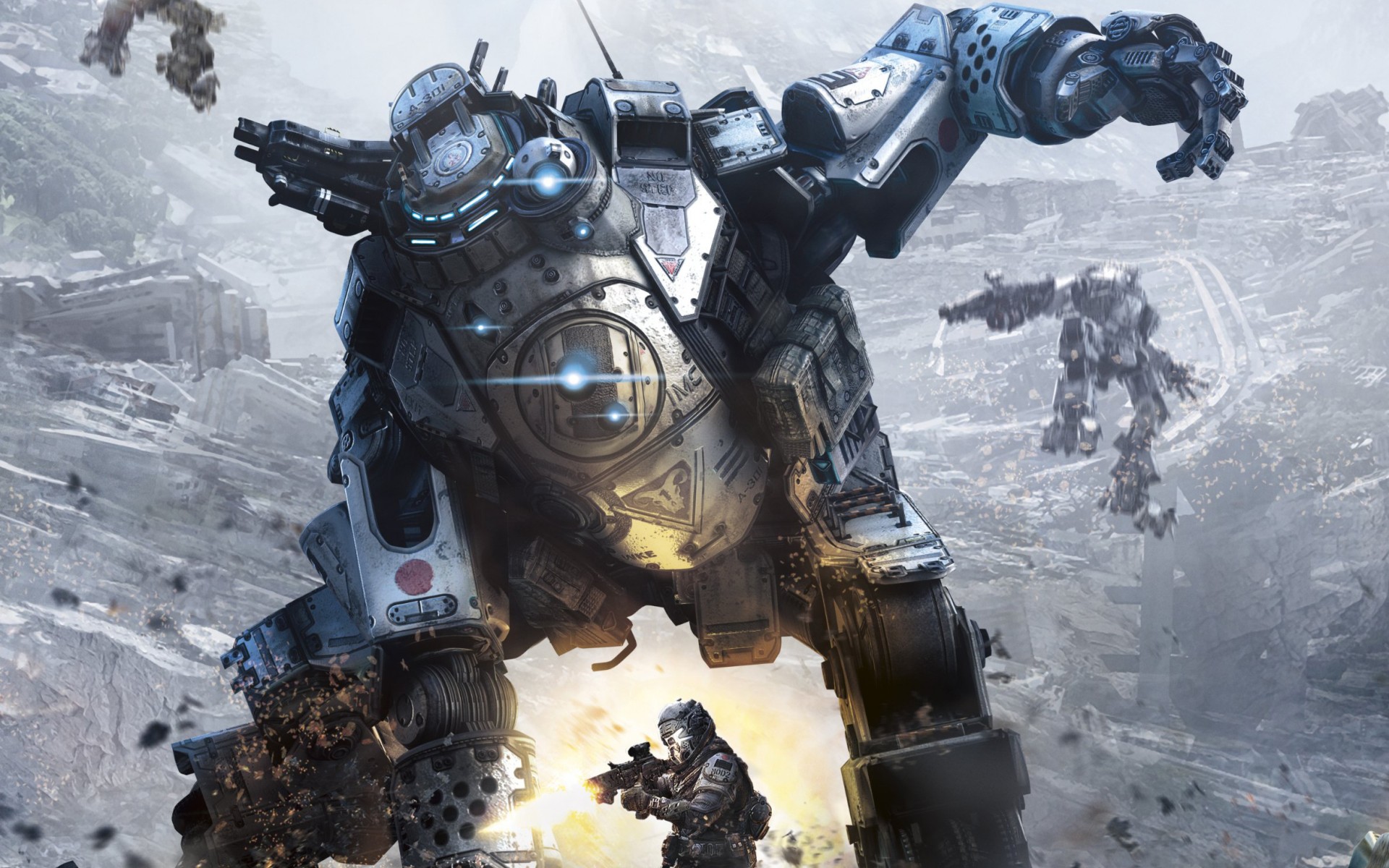
First hatched by ex-Infinity Ward devs Jason West and Vince Zampella in 2010, Respawn Entertainment boasts considerable heritage in the shooter genre. This bleeds into the Titanfall experience itself, and picking up the controller to hop into a round of mech-on-mech combat feels intuitive. Slick controls and excellent first-person platforming are just some of the shooter’s high points, and considering that blistering multiplayer is Titanfall’s bread and butter, the resulting final product is a competent shooter experience.
It's by no means perfect, but as far as franchise-starters go, Titanfall has laid out a great platform for the oncoming sequel.




